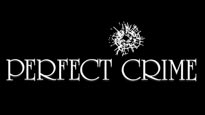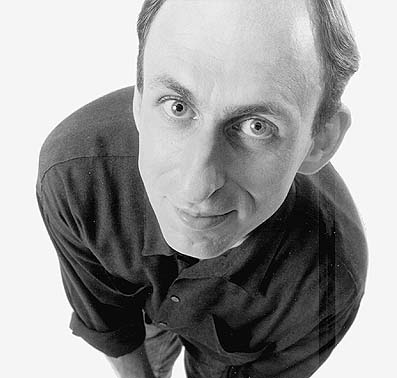Between 1997 and 2003 I had the great good fortune of being co-teacher of a series of master classes for actors and directors with Joseph Chaikin. You'll hear me speak of Joe often in this blog. He was my hero, my mentor, my friend. He was also my favorite director.
 One person that Joe admired greatly is theater director Eugenio Barba. Barba was born in Italy, but made his way to Norway, and then finally to Denmark, where he has been the director of Odin Teatret since 1964. In our classes, Joe and I always distributed a packet of materials to the students on the first day. The packet was meant to help us find common ground, to inspire the students in the work we would be doing together for the next six weeks. One of the items included in the packet was Eugenio Barba's Letter To Actor D.
One person that Joe admired greatly is theater director Eugenio Barba. Barba was born in Italy, but made his way to Norway, and then finally to Denmark, where he has been the director of Odin Teatret since 1964. In our classes, Joe and I always distributed a packet of materials to the students on the first day. The packet was meant to help us find common ground, to inspire the students in the work we would be doing together for the next six weeks. One of the items included in the packet was Eugenio Barba's Letter To Actor D.
This letter is the most inspiring epistle on the theater that I've ever read. I find myself returning to it time and again. In fact, for the next few blogs I'm going to address this letter in detail, churning it over paragraph by paragraph, so that the ideas contained in it will permeate our sub-conscious. But for tonight I'm going to post the letter in its entirety. It was given to me by Joe and I don't know what book he got it from. But the original publication is credited in the preface. I hope you will find this as enlightening as I do.
LETTER TO ACTOR D.
This letter was written by Eugenio Barba to one of the actors of the Odin in 1967. It has often appeared in books and magazines in different parts of the world, either to illustrate the Odin’s vision of theatre or to present, in more general terms, its attitude toward a new actor. It was first published in the book Synapunkter om kunst (Copenhagen, 1968).
I have often been struck by a lack of seriousness in your work. This is not the same as a lack of concentration or good will. It is the expression of two attitudes.
First of all, it seems as if your actions are not driven by any inner conviction or irresistible need which leaves its mark on your exercise, improvisations and performance. You may be concentrated in your work, without sparing your energies, your gestures may be technically correct and precise, but your actions remain empty. I don’t believe in what you are doing. Your body clearly says “I have been told to do this.” But your nerves, your brain, your spine, are not committed, and with this skin-deep-commitment you want to make me believe that what you are doing is vital to you. You do not sense the importance of that which you want to share with the spectators. How then can you expect the spectator to be gripped by your actions? How can you, with this attitude, uphold the understanding of the theater as a place where social inhibitions and conventions are annihilated to make way for an open-hearted and absolute communication? You represent the community within this space, with the humiliations you have undergone, the degradation which has closed you up, your cynicism as self-defense, and your optimism as the essence of irresponsibility. All this, together with your guilt, your need to love, the longing for a lost paradise hidden in the past, close to the person who could make you forget fear. Everybody present with you in this space will be shaken if you succeed in rediscovering these sources, this common ground of human experience, the hidden fatherland. This is the bond that unites you to the others, a treasure that lies buried deep within all of us, never unearthed, because it is our only comfort, and because it hurts when we touch it.
The second attitude I see in you is your embarrassment in considering the seriousness of your work. You feel the need to laugh, to sneer, and come with humorous comments about what you and your colleagues are doing. It is as if you want to flee from the responsibility that you feel is inherent in your craft, which consists in establishing communication with human beings and in assuming the responsibility for what you are revealing. You are frightened by seriousness, the knowledge that you are on the fringes of the permissible. You are frightened that everything you do is synonymous with tediousness, fanaticism, or over-specialization. But in a world where people around us either no longer believe in anything, or only pretend to believe in order to be left in peace, he who digs deep within himself to reach a clarity about his own situation, his absence of ideals, his need for spiritual life, will always be called fanatic or naïve. In a world with cheating as a norm, he who seeks his own truth is taken for a fraud, a hypocrite.
I wonder if you realize that all you create, everything liberated and given form by your work is also a part of life and deserves care and respect. Your actions before the community of the spectators should be powered by the flame hidden in the red-hot iron, the voice in the burning bush. Only then will your actions live on in the senses and the memory of the spectator, fermenting into unforeseeable consequences.
We know that when Dullin lay on his deathbed, his face deformed itself into all the important roles he had played: Smerdiakov, Volpone, Richard III. It was not just the man Dullin who was dying but also the actor, as well as the many stages of his working life.
If I ask you why you became an actor, you will reply: “To fulfill myself, to express myself.” But what does this mean? Who has fulfilled himself? Was it Manager Hansen who lived a quiet life, respectable and without problems, never tormented by answerless questions, or the romantic Gauguin, who broke with all of the social norms and finished his life in miserable poverty and degradation in a Polynesian village, convinced that he had found the lost freedom, Noa-Noa? In an epoch where belief in God is diagnosed as a neurosis, we lack the scales to weigh our life and tell us whether we have been fulfilled or not. No matter which personal and hidden motives have led you to the theater, once you are within, you must find a meaning which, stretching beyond your own person, confronts you socially with others.
It is only within the catacombs that we can prepare a new life. It is here that one can seek spiritual commitment without fear of confrontation with questions that will bring about a new morality. This presupposes courage: the majority of people has no need of us. Your work is a sort of social mediation upon yourself, your human condition and the vents that touch you to the quick through the experiences of our age. In such a precarious theater which shocks the normal psychic well-being, every performance can be your last. You should consider it as such, the final possibility of reaching out to others, crying out your last word, your testament, the reckoning of your actions.
If being an actor can mean all this to you, then a new theater will be born. A new approach to the literary tradition will spring forth, a new technique and a new relationship between you and the people who come to see you each evening because they need you.



















